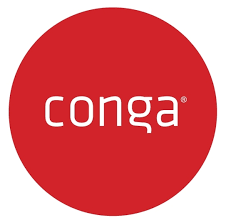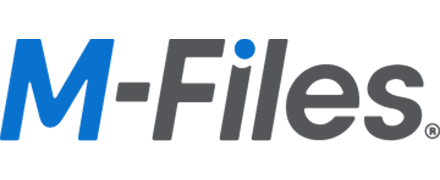Top Contract Management Softwares
Contract Management software streamlines the process of creating, analyzing, and managing contracts throughout their lifecycle. It enhances efficiency by automating tasks such as contract creation, negotiation, compliance monitoring, and renewal tracking. With centralized storage, users can easily access contract details and monitor key dates and obligations. This software ensures compliance with ... Read More
190 companies found
Product Description
Precisely Software is designed to help businesses make the most accurate and informed decisions using reliable data. At its core, it's all about providing the tools and insights needed to ensure that the information your company relies on is correct and up-to-date. With Precisely, you can manage, govern, and analyze your data across various platforms with ease. The software delivers a unified app... Read More
Users
- • No Data
Industries
- • No Data
Market Segment
- • No Data
Product Description
When you're managing important documents, it can be a headache to keep track, get signatures, and ensure everything is securely handled. That's where DocuSign comes in. DocuSign is a software solution designed to make the process of signing, sending, and managing documents much easier for businesses of all sizes. With DocuSign, you can send out contracts, agreements, or any document that needs a... Read More
Users
- • No Data
Industries
- • No Data
Market Segment
- • No Data
Product Description
Planview is a software company that helps businesses effectively manage their work, projects, and resources. With its user-friendly tools, organizations can better organize and track their projects, ensuring that everything stays on schedule and within budget. Planview’s platforms cater to various business needs, whether it's managing individual projects, coordinating team efforts, or overseeing b... Read More
Users
- • No Data
Industries
- • No Data
Market Segment
- • No Data
Product Description
Basware is a trusted software solution designed for businesses that want to streamline their financial operations. If managing invoices, payments, and procurement sounds overwhelming, Basware offers an easy way to handle these tasks. It helps you keep track of all your invoices, making sure they are processed and paid on time. This reduces the hassle of chasing approvals and ensures accuracy, help... Read More
Users
- • No Data
Industries
- • No Data
Market Segment
- • No Data
Product Description
Sirion software is designed to help organizations manage their contracts with ease and efficiency. Whether you're dealing with vendors, clients, or partners, Sirion provides a streamlined approach to keep track of all your important agreements in one place. With Sirion, the complex and often time-consuming process of contract management becomes straightforward and manageable. What makes Sirion st... Read More
Users
- • No Data
Industries
- • No Data
Market Segment
- • No Data
Product Description
Conga simplifies the way businesses manage their documents, contracts, and revenue processes. With Conga's software solutions, you're equipped to create, automate, and manage documents and contracts with ease. Whether you're generating proposals, invoices, or legal contracts, Conga streamlines each step, helping you reduce errors and save time. What sets Conga apart is its focus on making complex... Read More
Users
- • No Data
Industries
- • No Data
Market Segment
- • No Data
Product Description
Icertis is a software company that specializes in contract management, helping businesses handle their contracts more effectively. When managing deals, agreements, and other business arrangements, contracts are often central. However, keeping track of the details, deadlines, and requirements in these documents can quickly become overwhelming. That’s where Icertis steps in. Their software is desig... Read More
Users
- • No Data
Industries
- • No Data
Market Segment
- • No Data
Product Description
Ivalua is a software company that provides a comprehensive suite of solutions aimed at helping businesses streamline their procurement and supply chain processes. By leveraging cloud-based technology, Ivalua allows companies to manage their suppliers, contracts, expenses, and procurement activities all in one place. This simplifies many of the complex tasks involved in procurement and supply chain... Read More
Users
- • No Data
Industries
- • No Data
Market Segment
- • No Data
Product Description
M-Files is a cloud-based document management solution that helps businesses organize, manage, and track their information more efficiently. Designed to be easy to use, M-Files integrates seamlessly with existing tools and workflows, so you don't have to disrupt your daily operations to get started. With M-Files, you can store all your important documents in one place, making it easier to find and... Read More
Users
- • No Data
Industries
- • No Data
Market Segment
- • No Data
Product Description
airSlate is a comprehensive software solution designed to simplify and streamline your business processes. Created with the needs of various industries in mind, airSlate makes it easier for organizations to manage and automate repetitive tasks, reducing manual effort and saving valuable time. With airSlate, you can create, integrate, and automate workflows without writing a single line of code. ... Read More
Users
- • No Data
Industries
- • No Data
Market Segment
- • No Data
What are the benefits of using Contract Management software?
Improved Efficiency
Contract Management software streamlines the contract lifecycle, automating many manual tasks such as data entry, document storage, and tracking. This allows for quicker creation, negotiation, and execution of contracts. Automation reduces workload, leading to increased productivity, as team members can focus on higher-value tasks rather than repetitive administrative duties.
Enhanced Compliance
Contract Management software helps ensure compliance with legal regulations and company policies. It provides features for setting alerts and reminders for upcoming deadlines and renewals, ensuring that no critical event is missed. By centralizing contracts and maintaining an audit trail, it becomes easier to conduct compliance checks and audits, reducing the risk of non-compliance penalties.
Better Organization
By centralizing contracts in a digital repository, Contract Management software significantly improves organization. Users can easily locate contracts using customizable search and filter options. This reduces the time spent sifting through paper files or scattered digital documents, providing a single source of truth for all contract-related information.
Minimized Risk
Contract Management software minimizes risk through features like automated checking and alerts for potential breaches or expiries. These systems often include compliance management tools to ensure contracts adhere to legal standards and internal guidelines. By identifying potential risks early, the organization can take proactive measures to mitigate them.
Cost Reduction
Implementing Contract Management software can lead to significant cost reductions by optimizing the contract process. This includes minimizing the expenses associated with document storage, printing, and distribution. Additionally, the software aids in the identification of unfavorable terms and conditions, which can be renegotiated or avoided altogether, saving costs in the long run.
Improved Analytics
Contract Management software includes analytical tools that provide insights into contract performance. These analytics help organizations make informed decisions, optimize contract terms, and identify opportunities for improvement. By examining key metrics, businesses can enhance their negotiation tactics and strategies.
Boosted Collaboration
With centralized access to contracts, team members can collaborate more effectively. Contract Management software often includes tools for commenting, version control, and shared access, enabling multiple users to work on and review contracts simultaneously. This collaboration enhances the consistency and quality of the final contractual documents.
Enhanced Security
Security is a critical concern when managing contracts. Contract Management software offers robust security features such as encryption, access controls, and audit trails, ensuring that sensitive information is protected against unauthorized access and breaches.
Scalability
Contract Management software supports scalability, enabling organizations to handle increasing volumes of contracts as they grow. This ensures that as business expands, the software can accommodate larger amounts of data and more complex workflows without degradation in performance.
By integrating Contract Management software into business processes, organizations gain substantial benefits that enhance efficiency, compliance, organization, and overall contract performance.
How does Contract Management software help in reducing contract risks?
Contract Management software is crucial for businesses aiming to mitigate risks associated with managing diverse and complex contracts. By implementing Contract Management software, organizations can safeguard themselves against potential losses and legal complications.
Centralized Storage and Accessibility
Contract Management software provides a centralized repository where all contracts are stored securely. This centralization ensures that authorized personnel can access the latest versions of contracts without delay. Having all documents in one place reduces the risks of misplaced or outdated contracts, which could lead to non-compliance or missed obligations. Centralized storage also aids in maintaining a consistent audit trail, which is fundamental during reviews or disputes.
Automated Alerts and Notifications
One of the key features of Contract Management software is the automation of alerts and notifications. The software can be programmed to send reminders for upcoming deadlines, renewal dates, or compliance checks. These automated notifications prevent accidental lapses in crucial contract terms, minimizing the risk of penalties or breaches. By receiving timely alerts, stakeholders can take necessary actions to honor contractual obligations promptly.
Compliance Management
Ensuring compliance with legal and regulatory standards is a significant aspect of risk management in contracts. Contract Management software helps in maintaining compliance by integrating regulatory requirements into the contract creation and execution processes. It allows for monitoring adherence to internal policies and external regulations, mitigating the risk of legal disputes. Automated compliance checks further assist in keeping all contractual practices within the bounds of applicable laws.
Standardization and Template Utilization
Contract Management software often includes customizable templates and standardized clauses that help in creating consistent and reliable contracts. By using pre-approved templates and clauses, businesses can avoid the risks associated with miscommunication or omission of critical terms. Standardization ensures that each contract adheres to the organization's best practices, reducing inconsistencies and potential misunderstandings.
Improved Collaboration
Collaborative tools within Contract Management software facilitate better communication between stakeholders involved in contract negotiation and execution. The software often includes features for version control, commenting, and real-time updates. By improving transparency and collaboration, the likelihood of disputes or errors caused by miscommunication is minimized. All parties have clear visibility into contract terms, fostering trust and alignment.
Robust Audit Trails
Audit trails are essential for risk management, providing a comprehensive record of all actions taken concerning a contract. Contract Management software automatically logs every activity, including who accessed or modified the contract and when changes occurred. This feature is vital for accountability and serves as a reliable reference during audits or legal challenges. Audit trails discourage unauthorized alterations and increase the integrity of the contract management process.
Risk Assessment Tools
Contract Management software often includes tools for assessing potential risks associated with a contract. By analyzing clauses, terms, and historical data, the software helps identify potential areas of concern before a contract is finalized. Proactive risk assessment allows businesses to address vulnerabilities in contract terms, ensuring agreements are structured to minimize exposure to unforeseen liabilities.
Contract Management software, through its sophisticated functionalities, plays a pivotal role in reducing contract risks. By employing advanced features for storage, collaboration, compliance, and risk assessment, it offers a comprehensive solution for managing contracts effectively and securely.
What features should you look for in Contract Management software?
When selecting Contract Management software, it's critical to identify features that align with the specific needs of your organization. Here are essential features to consider:
1. Centralized Repository
Look for Contract Management software that provides a centralized repository for all contracts. This feature ensures easy storage, access, and retrieval of contract information. A centralized system helps prevent data silos, facilitates collaboration, and streamlines contract-related workflows. It allows you to maintain a comprehensive record of all contract versions and associated documentation.
2. Document Automation
Document automation capabilities are a must-have in Contract Management software. This feature allows for the automatic generation and customization of contract documents using pre-defined templates. Automation reduces the risk of errors, saves time, and ensures consistency across all contracts. It also supports creating new contracts quickly by populating standardized language and terms.
3. Workflow Management
Effective workflow management is essential for tracking the progress of a contract from initiation to execution. Contract Management software should offer configurable workflows to align with your organization's processes. Features such as automated notifications, task assignments, and approval routing ensure that everyone involved in the contract lifecycle is aware of their responsibilities and deadlines.
4. Compliance and Risk Management
A comprehensive Contract Management software should include tools to ensure regulatory compliance and manage risk. Features such as obligation tracking, compliance checklists, and audit trails help monitor adherence to contractual terms. Risk management tools can identify potential issues early, enabling proactive measures to mitigate risks associated with contracts.
5. Search and Reporting Functions
The ability to search and generate reports from contract data is fundamental. Contract Management software should have robust search capabilities to locate specific contracts or clauses efficiently. Reporting functions should offer insights into contract performance, financial impacts, and renewal schedules, supporting data-driven decision-making processes.
6. Integration Capabilities
Seamless integration with other business systems enhances the effectiveness of Contract Management software. Look for software that integrates with existing tools such as CRM, ERP, and finance systems. This integration ensures data consistency and improves collaboration between departments, resulting in a more streamlined contract management process.
7. Security Features
Safeguarding sensitive contract data is paramount. Ensure that the Contract Management software offers robust security features, including encryption, role-based access controls, and audit trails. These features help protect against unauthorized access and maintain data integrity while complying with industry standards and regulations.
8. User-Friendly Interface
A user-friendly interface is essential for ensuring quick adoption by all users. The software should have an intuitive design that simplifies navigation and usability, reducing the learning curve and minimizing the need for extensive training.
Choosing the right Contract Management software involves evaluating these features in the context of your organization's specific needs and workflows. By prioritizing features like a centralized repository, document automation, and integration capabilities, you can enhance efficiency and effectiveness in managing contracts.
How can Contract Management software improve compliance and regulations handling?
Contract Management software significantly enhances compliance and regulations handling for businesses. By automating and organizing contract-related processes, it ensures that organizations adhere to legal standards and meet their contractual obligations efficiently.
Centralized Repository
Contract Management software provides a centralized repository, enabling businesses to store all contracts in one location. This centralization ensures easy access and retrieval of important documents and information, reducing the risk of non-compliance due to lost or misplaced contracts. This centralized nature also aids in maintaining a consistent and up-to-date record of all legal obligations.
Automated Alerts and Notifications
Timely compliance is crucial for any organization. Contract Management software aids in compliance by offering automated alerts and notifications for key dates such as renewals, expirations, or specific compliance deadlines. These alerts help businesses stay proactive in managing their contracts, minimizing the risk of missing critical compliance-related deadlines.
Regulatory Updates and Adaptability
Regulations continuously evolve, requiring organizations to keep updated with the latest legal standards. Contract Management software can track regulatory changes and provide necessary updates. By adapting existing contracts to new regulations, businesses remain compliant with minimal administrative effort. This adaptability reduces the strain on legal and compliance teams, allowing them to focus on strategic initiatives.
Standardized Processes
Developing standardized processes through Contract Management software can streamline compliance efforts. This standardization ensures that all contracts adhere to company policies and industry regulations from the outset. By enforcing consistency, businesses minimize the risks associated with non-standard clauses or unauthorized contract modifications that could lead to compliance breaches.
Risk Management and Mitigation
Effective risk management is essential for maintaining compliance. Contract Management software helps identify potential risks within contracts by analyzing clauses and terms that may conflict with current regulations. By flagging potential issues, organizations can address them promptly, mitigating legal risks and preventing potential penalties or legal actions.
Audit Trails and Documentation
Contract Management software maintains an auditable trail of every action taken on a contract. This documentation is essential for demonstrating compliance to regulatory bodies. An audit trail provides a transparent history of contract creation, modification, and approval processes, ensuring compliance and facilitating smoother audits and inspections.
Workflow Automation
By automating workflows, Contract Management software streamlines approval processes and enforces adherence to compliance guidelines. Automated workflows ensure that contracts undergo necessary checks and approvals by relevant departments, reducing human errors and ensuring compliance with internal policies and external regulations.
Data Security and Confidentiality
Ensuring data security and confidentiality is a compliance requirement in many industries. Contract Management software provides robust security features, including encryption and access controls, safeguarding sensitive contract data. This protection not only helps in maintaining compliance but also builds trust with partners and clients by demonstrating a commitment to protecting confidential information.
Contract Management software facilitates more efficient handling of regulatory compliance through centralized repositories, automated alerts, regulatory updates, risk management, and secure data handling. By leveraging these capabilities, businesses can achieve better compliance outcomes, reducing legal risks and maintaining their operational integrity.
What types of businesses can benefit from Contract Management software?
Contract Management software has become an essential tool across various industries and business types. Organizations often find themselves managing a multitude of contracts, each requiring specific terms, deadlines, and conditions. Here, we explore different types of businesses that can benefit from Contract Management software.
Legal Firms and Law Departments
Legal firms handle numerous contracts and agreements regularly. Contract Management software assists by streamlining the creation, review, and execution processes. This leads to enhanced accuracy and efficiency in legal document handling, allowing legal professionals to focus more on advisory and advocacy roles.
Healthcare Facilities
Healthcare organizations manage a range of contracts with vendors, insurance companies, and medical professionals. Contract Management software ensures these facilities maintain compliance with complex healthcare regulations while optimizing their supplier agreements and partnerships.
Construction Companies
Construction firms deal with large-scale projects that often require precise management of contracts with subcontractors, suppliers, and clients. These businesses benefit from software that organizes and tracks contracts, ensuring all parties adhere to project deadlines and budget constraints.
Financial Services
Banks, investment firms, and other financial service providers handle a variety of contracts related to loans, investments, and customer agreements. Contract Management software helps minimize risk by automating compliance checks and ensuring adherence to regulatory requirements.
Manufacturing Businesses
Manufacturers negotiate contracts with suppliers and distributors frequently. Contract Management software facilitates better terms negotiation, pricing strategies, and logistics management, leading to cost savings and improved supply chain efficiency.
Telecommunications
In the telecommunications sector, businesses often deal with contracts for technology procurement, service agreements, and customer subscriptions. Using Contract Management software assists in managing contractual obligations and delivering uninterrupted services while adapting swiftly to market changes.
Retail and E-commerce
Retailers and e-commerce platforms manage contracts with suppliers, logistics partners, and service providers. Contract Management software tracks these agreements and ensures on-time delivery, fair pricing, and proper inventory management, thus improving customer satisfaction.
Education Institutions
Educational organizations enter into various contracts with service providers, faculty, and technology vendors. Contract Management software ensures compliance with educational regulations and facilitates the smooth operation of institutional contracts.
Energy and Utilities
Energy companies regularly manage contracts with equipment suppliers, service providers, and regulatory bodies. Contract Management software aids in reducing the complexities associated with these contracts, ensuring project timelines are met efficiently.
Government Agencies
Government bodies deal with extensive contractual work, ranging from infrastructure projects to public services. Contract Management software enhances transparency, accountability, and compliance with statutory requirements.
Non-Profit Organizations
Non-profits often work under tight budgets and strict funding guidelines. Contract Management software simplifies the administration of grants, donations, and procurement contracts, aiding in maximizing organizational impact.
In conclusion, Contract Management software proves invaluable across varied sectors by enhancing the efficiency of contract handling, ensuring compliance, and minimizing risks. It provides essential support to businesses by automating, tracking, and managing their contractual obligations efficiently.
How does Contract Management software streamline the contract approval process?
Contract Management software plays a pivotal role in optimizing the contract approval process for organizations. This software brings several enhancements that facilitate quicker, more efficient, and less error-prone approvals.
Automated Workflows
One of the primary ways Contract Management software streamlines the approval process is through automated workflows. These workflows can be customized to align with organizational policies and procedures. Automated workflows ensure that contracts are automatically routed to the appropriate personnel for review and approval, eliminating the need for manual hand-offs. This not only speeds up the process but also reduces the risk of contracts being overlooked or delayed at any stage.
Real-Time Collaboration
Contract Management software fosters real-time collaboration by allowing multiple stakeholders to review and edit contracts simultaneously. This capability is crucial in reducing the back-and-forth communication that can delay approvals. Stakeholders can easily track changes, make comments, and resolve issues on a unified platform, ensuring that everyone remains on the same page. Real-time collaboration results in more accurate contracts and faster consensus, thus expediting approvals.
Version Control
In the traditional contract approval process, managing multiple versions of a contract document can be challenging. Contract Management software addresses this by providing robust version control features. It maintains a comprehensive history of all contract edits and changes, preventing confusion that arises from working with outdated versions. Stakeholders can rest assured that they are always reviewing the most current version of a document. This reduces errors and streamlines decision-making, further accelerating the approval process.
Approval Hierarchies
Contract Management software enables the establishment of predefined approval hierarchies. These hierarchies dictate the order in which contracts must be reviewed and approved. By setting clear approval pathways, the software eliminates ambiguity about who needs to approve a contract and in what sequence. This ensures that contracts move smoothly from one stage to the next without unnecessary bottlenecks, thus enhancing efficiency.
Enhanced Visibility
Transparency is another benefit offered by Contract Management software. The software provides stakeholders with increased visibility into the status of each contract. By enabling users to track where a contract is in the approval process, this visibility reduces uncertainties and allows for timely interventions in case of delays. Enhanced visibility empowers organizations to identify and address process inefficiencies swiftly.
Secure Access and Permissions
Security and data protection are of utmost importance in contract management. Contract Management software ensures that access to contracts is secure and permissions are appropriately assigned based on roles. This control over who can view or edit contract information ensures that sensitive data is adequately protected. Moreover, it ensures that only authorized personnel are involved in the approval process, maintaining integrity and compliance.
By integrating these features, Contract Management software simplifies and accelerates the contract approval process, benefiting organizations by reducing time-to-close, minimizing risks, and improving overall governance of contract lifecycle management.
What integrations should Contract Management software support for better functionality?
Contract Management software enhances organizational efficiency by streamlining contract lifecycles. To maximize its potential, it is imperative that this software supports a range of integrations. These integrations enable seamless data flow, reducing manual tasks and improving overall workflow. Below are several integrations that should be supported for optimal functionality:
1. Enterprise Resource Planning (ERP) Systems
Integrating Contract Management software with ERP systems allows for seamless data synchronization. The integration facilitates automated updates regarding financial transactions, procurement, and compliance requirements. This ensures the contract terms align with the broader business processes, optimizing financial management.
2. Customer Relationship Management (CRM) Tools
Integrating with CRM tools centralizes client information, offering real-time access to client data and contract history. This integration aids in maintaining accurate customer profiles and ensuring contract compliance. It also enhances customer relationship strategies by providing timely insights derived from client interactions and contract terms.
3. Document Management Systems (DMS)
This integration supports efficient document handling, archiving, and retrieval processes. Connecting Contract Management software with DMS ensures that all contract-related documents are stored and accessible within a unified platform. This streamlines document workflows, maintains version control, and strengthens security protocols.
4. E-Signature Platforms
E-Signature integration accelerates the contract approval process. By allowing authorized users to sign documents digitally, this integration reduces processing time, minimizes paper wastage, and facilitates a faster commitment from stakeholders. Key players can sign contracts remotely, ensuring timely execution without geographic constraints.
5. Legal Research Databases
Access to legal research databases through integration provides updates on relevant legal developments such as regulatory changes, amendments, or industry standards. Such integrations ensure that contracts comply with current laws and practices, mitigating risk exposure by maintaining legally sound contracts.
6. Accounting Software
For financial accuracy, integrating with accounting software is crucial. This connection ensures expense tracking, budget alignment, and financial forecasting are aligned with contract obligations. Automating these processes reduces the likelihood of financial discrepancies, enhancing fiscal responsibility.
7. Collaboration Tools
Integrations with collaboration tools facilitate seamless communication among stakeholders. Collaborative platforms enable real-time discussions, feedback, and updates related to contracts. This improves transparency and effective management across departments involved in the contract lifecycle.
8. Supply Chain Management (SCM) Systems
Integrating with SCM systems helps maintain alignment between contracts and supply logistics. This integration enables better coordination around procurement, vendor management, and supply chain operations. It ensures timely deliveries and prevents discrepancies between contractual terms and supply realities.
By encompassing these integrations, Contract Management software can provide a robust, comprehensive solution that aligns with various business processes. These integrations support improved efficiency, compliance, transparency, and collaboration concerning contract management, thereby enhancing organizational functionality.









